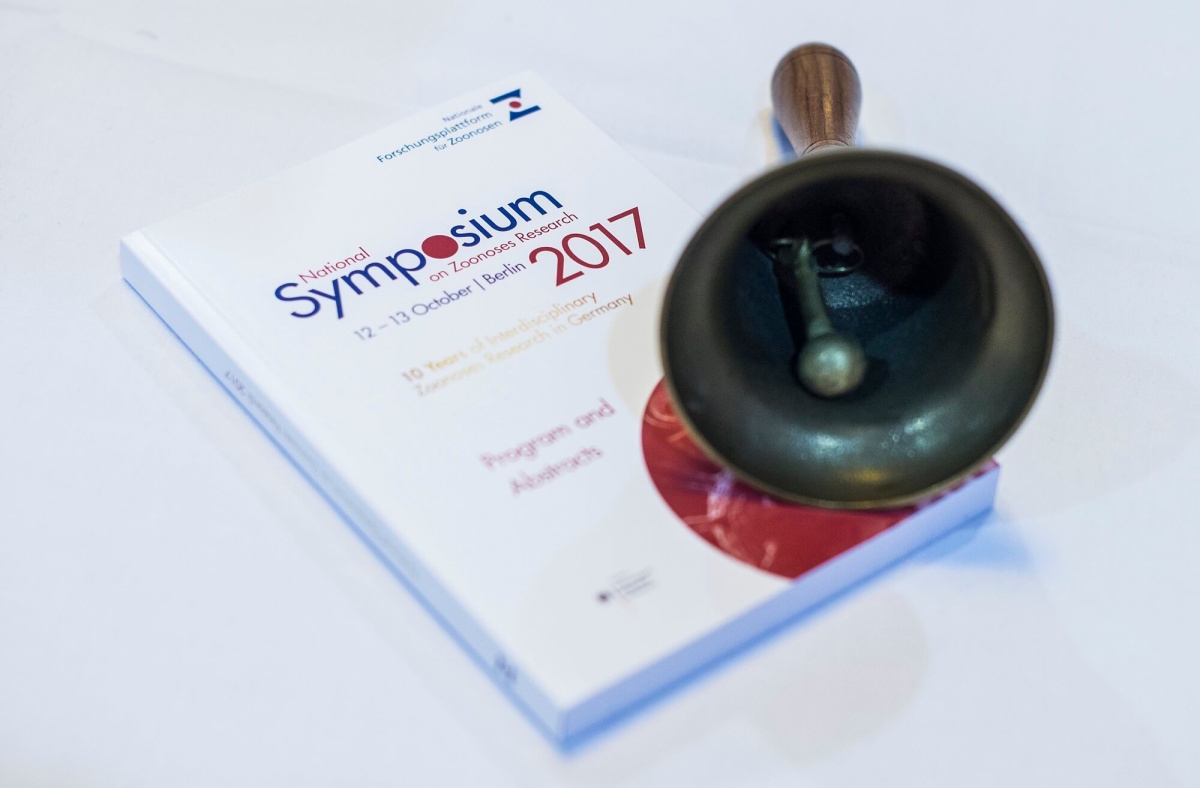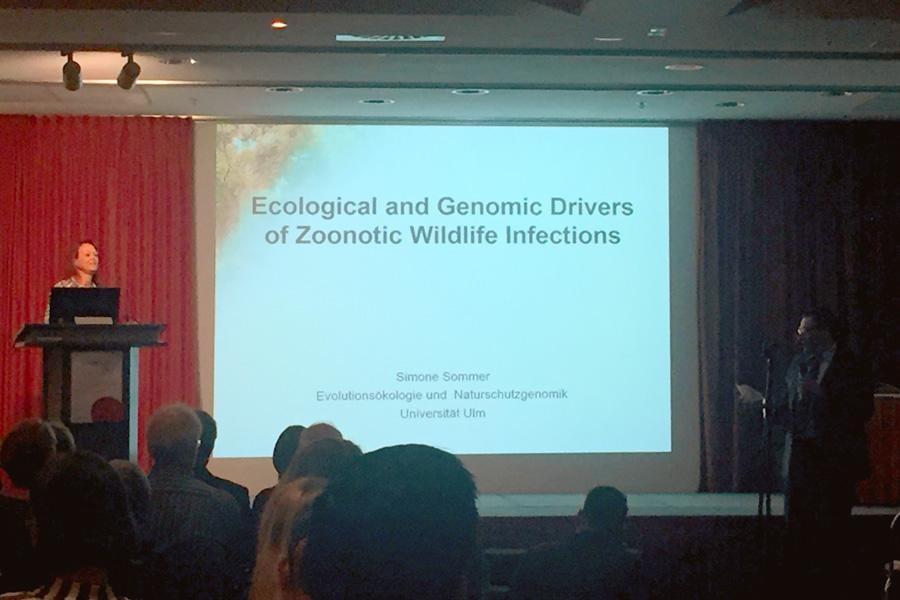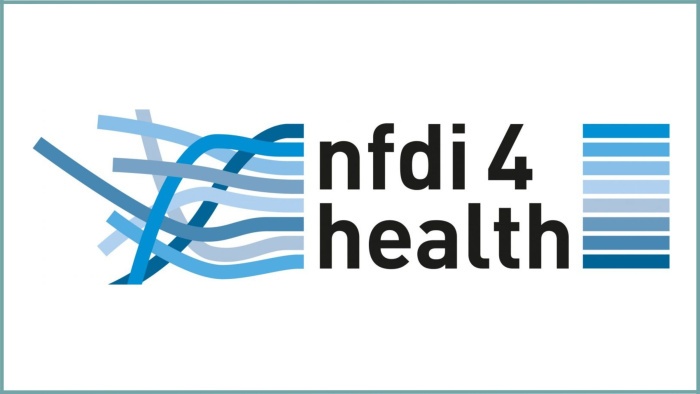"Understanding Zoonoses is a Complex Endeavor"

The Zoonoses Symposium 2017 © TMF
Human interventions in the environment not only pose a threat to biodiversity. Disruptions in the animal world can also be the cause of infections transmitted between animals and humans - so-called zoonoses. "With our projects in Panama and Namibia, we have investigated how zoonotic infections can arise when humans disrupt the community of wild animals through habitat destruction or changes in land use. This also leads to humans, their livestock, and wild animals coming closer together, for example, when they share watering holes in large parts of Africa," illustrated Prof. Dr. Simone Sommer (University of Ulm) in her keynote address at the opening of the National Symposium on Zoonotic Research, taking place today and tomorrow in Berlin.

Das Symposium für Zoonoseforschung 2017. © TMF e.V.
While some species cope better with human disturbances, others are very sensitive to disruptions and disappear more quickly. A decrease in biodiversity often leads to higher population densities of adaptable surviving species and thus promotes the transmission of viruses that develop zoonotic potential, possibly infecting livestock and humans. "However, zoonotic infections are not only a threat to humans; wildlife also suffers from these diseases," emphasized the biologist.
Sommer, therefore, is especially concerned about interdisciplinary collaboration. "Understanding zoonoses is not a trivial matter but a complex endeavor. Integrated approaches from many disciplines are therefore very important for our work — from ecology to genetics to human and veterinary medicine."
Orientation of Zoonotic Research towards the "One Health" Approach
Andrea Spelberg from the Federal Ministry of Education and Research (BMBF) emphasized in her welcome address that the health of humans and animals, as well as the environment, are closely interconnected and that research must explore new paths to meet the requirements of the "One Health" concept. For this reason, at the beginning of 2016, the research agreement on zoonoses, which was concluded ten years earlier, was renewed. Four federal ministries* are now participating in this agreement. The newly established "Research Network Zoonotic Infectious Diseases" by the BMBF is expected to make significant contributions to the implementation of the "One Health" approach in Germany. This and other German consortia and initiatives for researching zoonoses will be presented during the symposium on Thursday afternoon and Friday morning.
Review and Outlook on Networked Zoonotic Research in Germany
This year's National Symposium on Zoonotic Research looks back on ten years of networked zoonotic research in Germany. "Strengthening the collaboration between human and veterinary medicine in research was the task of the Zoonoses Platform from the beginning. In the future, our mission will be to close the gap between research and application on a national level through exchange with public health and veterinary services and to position the platform internationally," said Prof. Dr. Stephan Ludwig (University of Münster) in his welcome address. The National Research Platform for Zoonoses is hosting the symposium for the ninth time.
* Federal Ministry of Education and Research (BMBF), Federal Ministry of Food and Agriculture (BMEL), Federal Ministry of Health (BMG), Federal Ministry of Defense (BMVg)
Press Contact
Inger Neick, Antje Schütt
E-mail
Phone: 030 – 22 00 247-30,
Mobile: 0173 6141663
Dr. Ilia Semmler
E-mail
Phone: 030 - 22 00 247-72
National Research Platform for Zoonoses
Research on zoonoses — i.e., research on infectious diseases that can be transmitted between animals and humans — takes place in Germany at many different locations and institutions: at universities and federal institutes, in small workgroups, and in large alliances. Knowledge and experience from human and veterinary medicine, infectious biologists, and scientists from other disciplines are of great importance. Therefore, interdisciplinary collaboration is necessary.
The National Research Platform for Zoonoses, an infrastructural and scientific organization, enables and supports this networking. The platform's task is to link biomedical basic research more closely with human and veterinary medicine to make zoonotic research in Germany more effective. The Zoonoses Platform is jointly supported by the University of Münster, the Friedrich-Loeffler-Institute, and the TMF. The annual National Symposium on Zoonotic Research is significantly funded by the Federal Ministry of Education and Research.
Further Information


